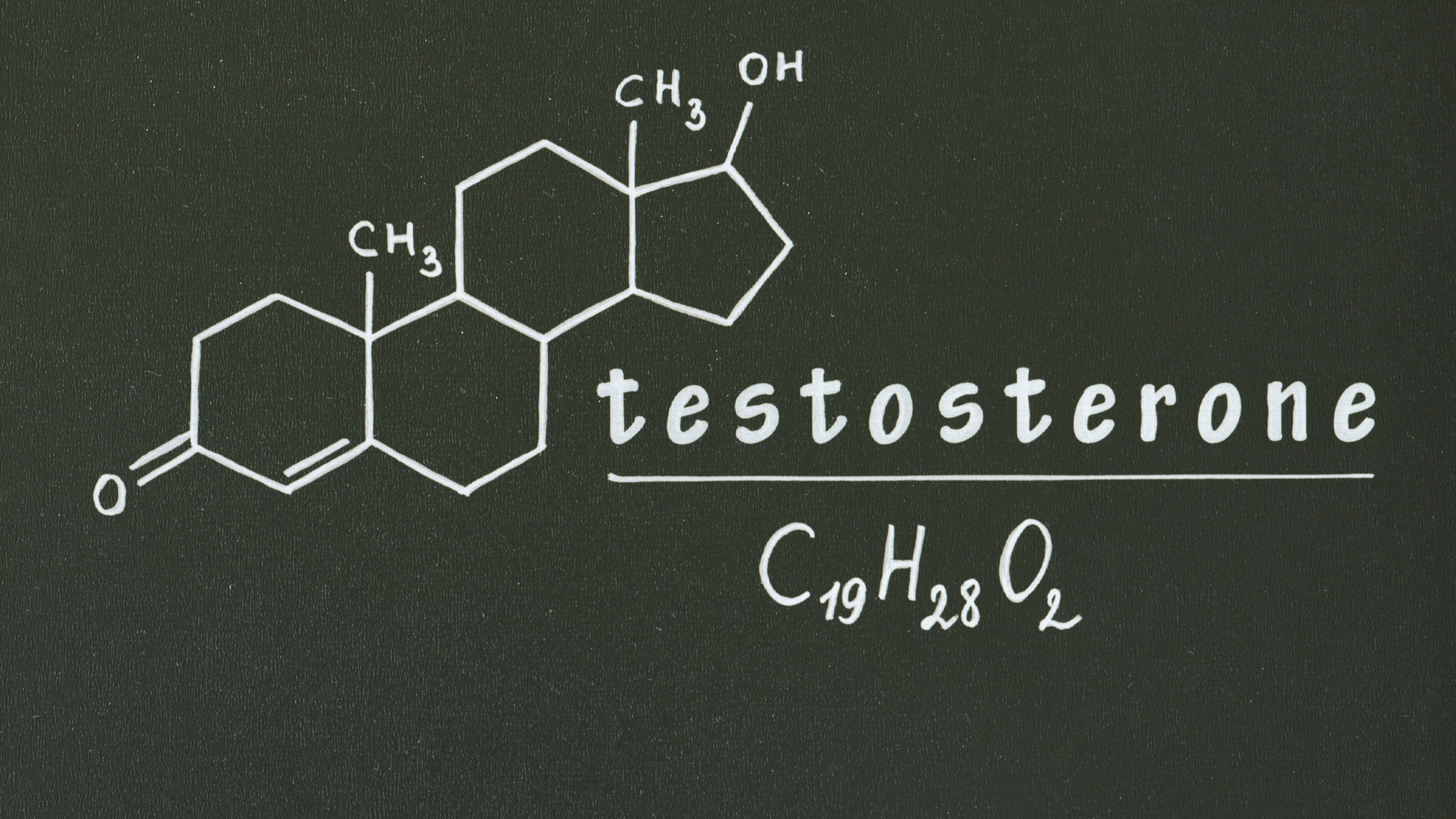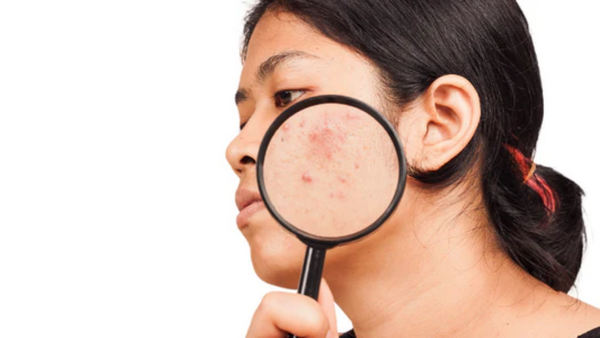PMS is the nightmare that many women face month after month. However, there are things that can be done to reduce the severity of premenstrual syndrome. In this article, we will look at PMS, including its symptoms, causes, treatments, and tips for a helpful diet.
PMS - The Facts
Premenstrual syndrome (PMS) is a condition that affects a woman's emotions, physical health, and behavior during certain days of the menstrual cycle, usually just before menstruation.
Around 80 percent of all women of childbearing age are affected by PMS. Two weeks to a few days before the start of their period, they experience various psychological and physical symptoms. For most women, however, these disappear again when their period begins. The type and extent of the symptoms vary from woman to woman and also from month to month. [1]
Experts aren't sure what the exact cause of PMS is, but it's strongly suspected that it's related to the hormonal fluctuations that occur in the second half of the menstrual cycle.
This is because ovulation occurs around the middle of the cycle. During this time, the female body releases an egg, causing estrogen and progesterone levels to drop. A shift in these hormones can lead to both physical and emotional symptoms. Mood swings, for example, are one of the most common and serious PMS symptoms. [2]
IT'S WORTH READING!
AT THE END OF THE ARTICLE WE WOULD LIKE TO GIVE YOU A LITTLE JOY WITH A VOUCHER!

Changes in estrogen and progesterone levels also affect serotonin levels, a neurotransmitter that helps regulate mood, sleep cycles, and appetite. Low serotonin levels are associated with feelings of sadness and irritability, but also with sleep disturbances and unusual food cravings - all common PMS symptoms.
A study of premenopausal women showed that although 75 percent have at least one PMS symptom, only 8-20 percent meet the clinical criteria for a PMS diagnosis. [3]
In addition, certain medical conditions can resemble PMS, including chronic fatigue syndrome (CFS), thyroid disorders, and mood disorders such as depression and anxiety.
In order to obtain a clear diagnosis, you should therefore consult your doctor.
You can recognize PMS by these symptoms
Ovulation - the release of an egg from one of the two ovaries - takes place around day 14 of the cycle. Menstruation then occurs on average on day 28. PMS symptoms can begin around day 14 and, in the worst case, last up to seven days after the start of menstruation.
The most common PMS symptoms include headaches, bloating, cramps and mood swings. For some women, these symptoms are nothing more than a minor inconvenience. For others, they can become so severe that they can't go about their work, school or other obligations or activities. And some women get their period without feeling the slightest hint of any PMS symptoms.
Other psychological PMS symptoms may include:
- Depression
- Social withdrawal
- Bad mood
- Crying without a good reason
- Reduced libido
- Irritability or anger
- Difficulty concentrating
- Increased anxiety
- Sleep problems, such as insomnia
Additional physical symptoms may include:

- fatigue
- Weight gain
- Constipation or diarrhea
- Changes in appetite, such as cravings
- Sensitive or swollen breasts
- Acne , appearance of pimples and oily skin
PMS can also worsen symptoms of diseases such as diabetes, depression and irritable bowel syndrome (IBS) . Age can also affect the severity of PMS: During perimenopause, the transition period up to menopause , PMS symptoms may worsen.
There are two other clinical pictures that are similar to PMS:
Premenstrual aggravation is a worsening of symptoms of a pre-existing condition, such as anxiety, bipolar disorder, or depression, in the weeks or days before your period. About half of all women treated for PMS also suffer from depression or anxiety. [4]
Premenstrual dysphoric disorder (PMDD) is very similar to PMS, but it involves more severe symptoms that are more emotional. Some women experience mood swings that are so severe that their daily life is massively affected.
Studies estimate that about 75 percent of women suffer from PMS during their fertile years , while only 3 to 8 percent suffer from PMDS. PMDS has been recognized as a separate disease since 2000. [5]
How to relieve the symptoms of PMS
There is no cure for PMS. But you can take steps to make those annoying and uncomfortable days before your period more pleasant. If you suffer from a mild or moderate form of premenstrual syndrome, here are some options:
- Take supplements such as folic acid, vitamin B6 , calcium and magnesium to reduce cramps and mood swings (more on that below)
- Drink plenty of fluids to relieve bloating
- Reduce stress , e.g. through exercise or reading
- Take vitamin D to reduce symptoms
- Exercise to improve mental health
- Eat a balanced diet to improve your overall health and energy levels. In plain language: lots of fruit and vegetables, little sugar, white flour, convenience foods and alcohol
- Get enough sleep every night to reduce fatigue
- Take part in cognitive behavioral therapy, which has been proven effective in the past

These nutrients could help you with PMS
In addition to painkillers, ovulation inhibitors, diuretics, corpus luteum hormones and antidepressants, you can also take nutrients and foods that may alleviate PMS symptoms, for example:
Calcium
Calcium supports bone strength and density. Adequate calcium levels also help regulate mood, sleep, and food cravings.
Women who are prone to PMS symptoms often do not consume enough calcium. Conversely, calcium supplementation may alleviate some PMS symptoms. [6]
Vitamin B6
Vitamin B6 plays an important role in the production of neurotransmitters that regulate our mood. It is a water-soluble vitamin that is found in many foods, for example:
- Milk
- Salmon
- tuna
- Eggs
- Carrots
- beef
- spinach
- Bananas
- avocado
A review study suggests that taking a vitamin B6 supplement is significantly more effective than a placebo for all forms of premenstrual syndrome. On average, physical symptoms improved in 70 percent of test subjects. Depressive symptoms were alleviated in 63 percent of test subjects. [7]
However, further studies are needed to reach a final conclusion.
Vitamin D
According to a study from the University of Massachusetts at Amherst that analyzed the calcium and vitamin D intake of nearly 3,000 women, consuming calcium-rich dairy products, especially when fortified with vitamin D , reduces the risk of developing PMS by up to 40 percent. [8]
In another study of 186 participants between the ages of 18 and 30, those who consumed at least 100 IU of vitamin D per day suffered from fewer PMS symptoms. [9]
Fatty fish, cod liver oil, egg yolks and edible mushrooms contain some vitamin D. The best source of vitamin D, however, is sunlight. Unfortunately, vitamin D deficiency is widespread in Germany, so many people benefit from vitamin D supplements.
magnesium
PMS is associated with low magnesium levels. Taking a combination of magnesium and vitamin B6 may help relieve PMS symptoms such as anxiety, depression, water retention, insomnia, and breast tenderness. [10]
Foods containing magnesium include:
- Bananas
- broccoli
- Wholemeal bread
- Brown rice
- Legumes
- Nuts
- potatoes
- Sunflower seeds
Essential fatty acids
Chronic inflammation appears to be able to exacerbate PMS symptoms. For this reason, it is logical that anti-inflammatory fatty acids can alleviate symptoms. This has been shown for α-linolenic acid (ALA), γ-linolenic acid (GLA) and oleic acid. [11] Evening primrose oil is used to treat PMS and contains GLA.
St. John's Wort
St. John's wort is known for treating depression. But it can also be effective for PMS. It can relieve both the emotional and physical symptoms of PMS. The mood-enhancing effect can be explained by the fact that St. John's wort acts on the neurotransmitters serotonin and noradrenaline, which influence our mood. [12]
Other foods that could help
- Gingko can relieve PMS symptoms such as fatigue, bloating and insomnia. This is because Gingko reduces prostaglandin levels in the body and increases the release of neurotransmitters in the brain. [13]
- Evening primrose oil is one of the best-studied herbs for PMS. Studies have shown that 500 to 1,000 mg daily can relieve PMS symptoms. [14]
- Chasteberry. The plant with the Latin name Vitex agnus-castus is one of the most commonly used supplements when it comes to female reproduction. A 2013 study on the subject suggests that it may have some benefits for women suffering from PMS. [15]
Conclusion: PMS does not have to be a nightmare
Most women suffer from at least one symptom of premenstrual syndrome. Fluctuations in hormone levels may play an important role in PMS. However, the exact cause is still unknown.
In addition to treating the symptoms with medication, the right diet can also provide relief from PMS. Nutrients such as vitamin B6, vitamin D, calcium, magnesium and essential fatty acids have shown promising approaches and effects in various studies.
AS PROMISED, YOU WILL RECEIVE A 10% VOUCHER ON OUR VITAMIN D3 liquid ,magnesium , vitamin B complex and calcium .
JUST COPY THE CODE PMS+V10 AND ENTER IT AT CHECKOUT.
Click here to SHOP
[1] https://pubmed.ncbi.nlm.nih.gov/28650737/
[2] https://www.ncbi.nlm.nih.gov/pmc/articles/PMC3017419/#__abstractid464289title
[3] https://journals.plos.org/plosone/article?id=10.1371/journal.pone.0169728
[4] https://www.acog.org/womens-health/faqs/premenstrual-syndrome?utm_source=redirect&utm_medium=web&utm_campaign=otn
[5] https://www.ncbi.nlm.nih.gov/books/NBK279265/
[6] https://www.ncbi.nlm.nih.gov/pmc/articles/PMC5313351/
[7] https://pubmed.ncbi.nlm.nih.gov/10334745/
[8] https://www.umass.edu/archivenewsoffice/article/researcher-umass-amherst-finds-diet-rich-calcium-and-vitamin-d-may-decrease-risk-pms
[9] https://pubmed.ncbi.nlm.nih.gov/29447494/
[10] https://www.ncbi.nlm.nih.gov/pmc/articles/PMC3208934/
[11] https://www.ncbi.nlm.nih.gov/pmc/articles/PMC3033240/
[12] https://pubmed.ncbi.nlm.nih.gov/20155996/
[13] https://www.liebertpub.com/doi/abs/10.1089/acm.2008.0493
[14] https://www.aafp.org/afp/2002/1001/p1239.html
[15] https://www.thieme-connect.com/products/ejournals/html/10.1055/s-0032-1327831

















